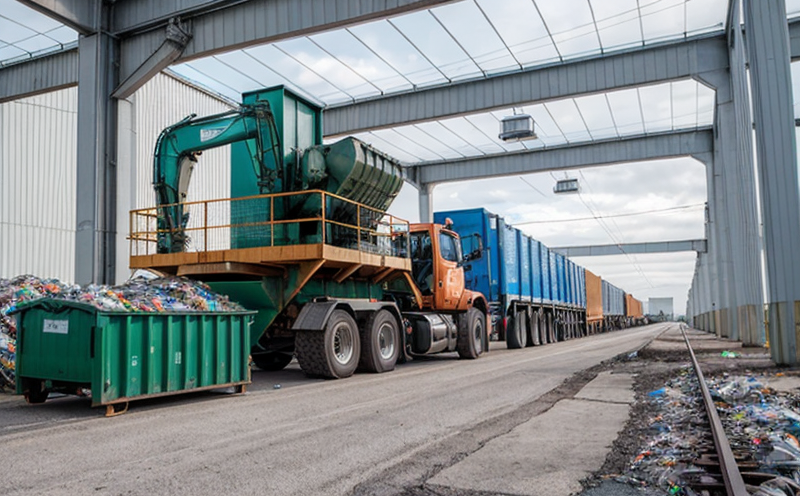EN 13432 Compostability Testing in Recycling Systems
The European Standard EN 13432 outlines a series of requirements and test methods to determine the compostability of materials. This standard is particularly relevant for industrial recycling systems, where the management of waste streams contributes significantly to sustainable production practices.
Compostability testing in this context aims to ensure that packaging and other plastic materials can decompose into stable end products during industrial composting processes without causing harm to the environment or human health. This service is crucial for industries seeking to comply with environmental regulations and promote circular economy principles.
The testing process involves several stages, starting from the initial assessment of material properties through detailed laboratory analysis. The goal is to ensure that materials meet strict criteria set forth by EN 13432, which includes biodegradability, biocompostability, and other key parameters relevant to industrial recycling systems.
For quality managers and compliance officers, this service provides assurance that their products comply with international standards. For R&D engineers and procurement specialists, it offers insights into material selection and optimization for sustainable practices. By leveraging EN 13432-compliant materials, businesses can enhance their environmental footprint and contribute to the broader circular economy.
The testing process typically involves specimen preparation, which includes cutting test samples according to specified dimensions and ensuring they are free from contamination. The specimens are then subjected to a series of tests designed to evaluate various aspects of compostability. These tests may include accelerated composting conditions, biodegradation analysis, and residue examination.
| Stage | Description |
|---|---|
| Initial Assessment | Evaluation of material composition and potential for compostability. |
| Specimen Preparation | Cutting test samples to standard dimensions, ensuring contamination-free conditions. |
| Accelerated Composting | Subjecting specimens to controlled composting environments to assess biodegradation rates. |
| Biodegradation Analysis | Determining the extent of decomposition and ensuring compliance with EN 13432 criteria. |
| Residue Examination | Evaluating any remaining material that does not decompose, ensuring it is harmless to the environment. |
The results of these tests are meticulously documented and reported in accordance with EN 13432 standards. This comprehensive approach ensures that materials meet the stringent requirements for industrial compostability, thereby supporting sustainable waste management practices within recycling systems.
Scope and Methodology
| Stage | Description |
|---|---|
| Initial Assessment | Evaluation of material composition and potential for compostability. |
| Specimen Preparation | Cutting test samples to standard dimensions, ensuring contamination-free conditions. |
| Accelerated Composting | Subjecting specimens to controlled composting environments to assess biodegradation rates. |
| Biodegradation Analysis | Determining the extent of decomposition and ensuring compliance with EN 13432 criteria. |
| Residue Examination | Evaluating any remaining material that does not decompose, ensuring it is harmless to the environment. |
International Acceptance and Recognition
The European Standard EN 13432 has gained widespread recognition globally for its comprehensive approach to compostability testing. This standard ensures that materials are not only biodegradable but also do not release harmful substances into the environment during decomposition.
Many countries and regions have adopted or aligned their regulations with EN 13432, recognizing it as a robust framework for evaluating the environmental impact of packaging materials. Compliance with this standard enhances the credibility of industrial recycling systems by ensuring that they handle compostable materials effectively.
The acceptance of EN 13432 in various jurisdictions underscores its importance in promoting sustainable waste management practices. For businesses operating across international markets, adherence to this standard can facilitate smoother compliance processes and enhance their reputation for environmental responsibility.
Environmental and Sustainability Contributions
- Bio-degradability: Ensures that materials break down into natural components without leaving harmful residues.
- Compostable Residues: Guarantees that any remaining material is harmless to soil and water systems.
- Energy Efficiency: Supports the reduction of landfill waste, which in turn decreases methane emissions from decomposing organic matter.
- Sustainable Resource Use: Encourages the use of renewable resources that can be reintegrated into nature through composting processes.





